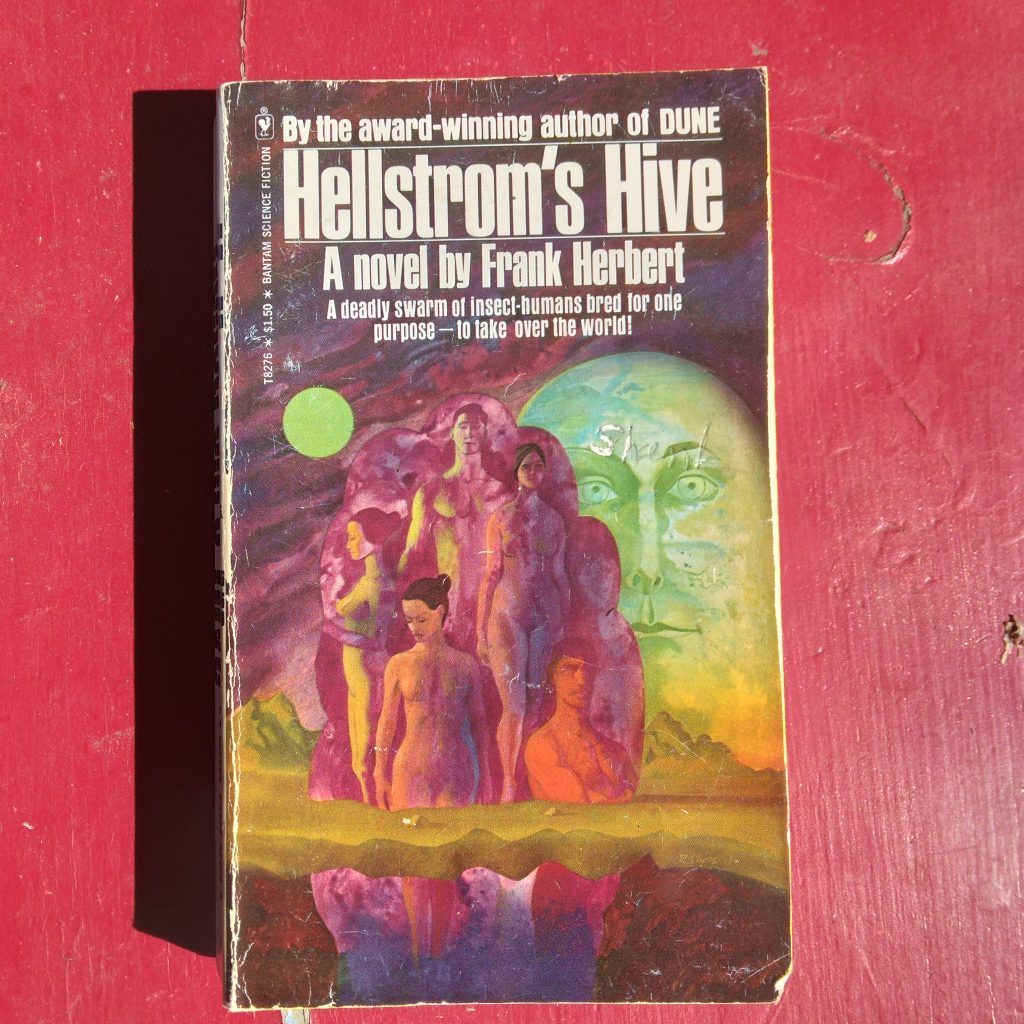By Frank Herbert

This was 3 dollars at Robert’s Book Shop in Lincoln City. I must have bought it 2 years ago. That was the last time I went to the Oregon Coast. It has been sitting collecting dust in a pile of unread books from some of my favorites like Asimov, Bradbury, and P.K. Dick, plus a few unknowns that had covers that interested me. I always judge a book by it’s cover. I couldn’t resist this one. It takes place in Oregon, it says, “The hellish hive in Oregon,” on the back. I love reading fiction that takes place where I live. I read Trainspotting when I lived in Leith. (It actually helped me learn the language.) This book had a ratty cover with the word ‘Shank’ scratched in the front cover and also written in pencil on the inner cover. ‘Shank’ was one of my great grandparent’s surnames. There are many reasons I buy books. Few of them have anything to do with the contents. The only reason of relevance I guess is that, given the resurgence in popularity of the Dune saga, and despite my love for it, I am rebelling by reading from Frank Herbert’s lesser known works.
This is pulpy and juicy and salacious. If you like pulp, and I do, this hits the mark. The only Dune like elements contained herein is the theme of ecology. The Dune series is a true masterwork, despite the opinion of critics that like to insult his literary style. It is masterwork because it is layer up layer deep. I would argue as well, that the world he creates is more complete than Tolkien. But this is altogether different. It is so pulpy, it gives me hope. If a writer keeps churning out the pulp, one day they may end up with something of real substance.
I liked this read. It was easy. The villain wins in the end and you start to question which side you are actually on. Dr. Hellstrom, (the origin of Futurama’s Dr. Wormstrom?) is in charge of a large secret underground human hive in South Eastern Oregon. Eastern Oregon, by the way, is the part of Oregon that is desert, sparsely populated, rural, and conservative and often forgotten about in Portland. Hellstrom’s adversaries are vaguely described Federal Agencies that are trying to gather intelligence in some kind of dystopian American future.
There is plenty of (book)nudity, and sex. There are characters that are introduced, you get to know them, and then they are killed, only to be replaced by new characters who reveal more and more aspects of the hive. You start to wonder if the book even has a protagonist, as each keeps stumbling into their own demise.
Hellstrom is a scientist and film maker and high level member of the hive who studies insects and hive behavior. His knowledge is shared with the hive so they can manipulate their own evolution. Members of the hive communicate by hand signal and scent. They have mastered human chemistry and are able to manipulate behavior, emotions, and mental states with various hormone injections. All members serve the hive until they are recycled in the vats. The hive has created a super weapon to prepare the way toward world domination.
Hellstrom is the classic evil genius. The investigating agency is nebulous and at times bumbling. It appears that Hellstrom has some help, somewhere, in an unnamed part of the government but this is only ever hinted at. A desperate level by level escape from the hive by one of the many agency protagonists reveals the details of how their society works, feeds, reproduces, etc. He is captured in the end, and the Hive tests a super weapon, leading to a stalemate with the government to end the book. Hellstrom has overcome the challenge posed by the outsiders and preserved the hive for the time being. They have reestablished their ecological niche, and are in a better position to keep it. Here the reader is left asking, was Hellstrom the protagonist all along? Does Herbert see it that way?